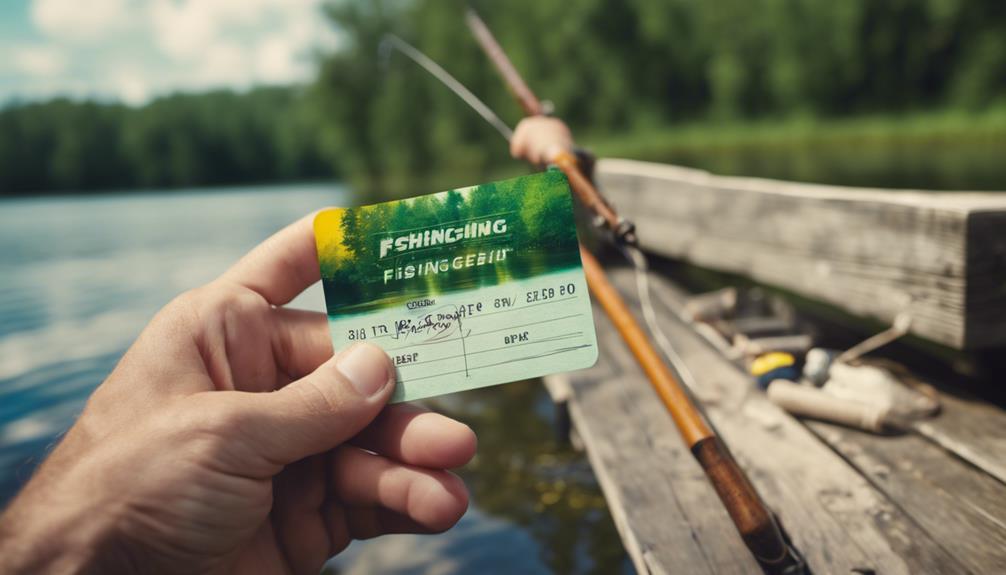Fishing is not just a hobby; it’s a way of life for many. Before you cast your line, however, you need to know how much a fishing license costs. In this detailed guide, we’ll explore the various factors that influence fishing license prices, the different types of licenses available, and tips on how to save money while ensuring you fish legally and responsibly.
Understanding Fishing License Costs by State
When it comes to fishing, one of the first questions you may have is, “How much does a fishing license cost in my state?” The cost can vary significantly depending on the state you reside in. For instance, states like California and Florida tend to charge higher fees due to their popularity and abundance of fishing opportunities. In contrast, states with less fishing traffic, like Wyoming or South Dakota, might offer lower rates. Generally, you can expect to pay anywhere from $10 to $50 for a basic resident license, but this can go up depending on the type and duration of the license you choose.
Types of Fishing Licenses and Their Prices
Fishing licenses come in various forms, each with its own price tag. The most common types include resident licenses, non-resident licenses, short-term licenses, and specialty licenses for specific types of fishing such as saltwater or fly fishing. Resident licenses are generally cheaper, while non-resident licenses can cost significantly more. For example, a resident freshwater fishing license in Texas may cost around $30, while a non-resident license can be upwards of $60. Additionally, if you’re looking for a short-term solution, many states offer daily or weekly licenses, ranging from $5 to $20.
Age and Disability Discounts for Fishing Licenses
One of the great things about fishing licenses is that many states offer discounts for certain age groups and individuals with disabilities. Seniors often receive reduced fees or even free licenses, depending on the state. For example, in some states, residents aged 65 and older may only pay a nominal fee or be exempt from licensing altogether. Similarly, individuals with disabilities may also qualify for discounted or free licenses. It’s essential to check with your state’s fish and wildlife agency to understand the specific qualifications and how much a fishing license costs for these groups.
Fishing License Duration: Short-term vs. Annual
When considering how much a fishing license costs, it’s crucial to think about how often you plan to fish. If you’re a casual angler, a short-term license might be the best option for you. These licenses can last anywhere from one day to a week and are generally less expensive, ranging from $5 to $20. However, if you’re an avid fisherman, an annual license usually offers a more economical solution. Annual licenses typically range from $20 to $100, depending on your state and residency status. Evaluating your fishing habits will help you determine which license duration is the most cost-effective for you.
Factors Influencing Fishing License Costs
Several factors influence how much a fishing license costs. These include the type of water you intend to fish in (freshwater vs. saltwater), the species you plan to catch (some licenses are species-specific), and additional fees that may apply, such as conservation stamps or permits for certain areas. States often use fishing license fees to fund wildlife conservation efforts, so be prepared for the possibility of additional costs that contribute to maintaining the environment where you fish.
Where to Purchase Fishing Licenses
Purchasing a fishing license can be done conveniently through various platforms. Most states offer online purchasing through their fish and wildlife agency websites, allowing you to buy your license from the comfort of your home. Alternatively, you can also visit local bait shops, sporting goods stores, or government offices to purchase your license in person. It’s important to ensure that you buy your license from authorized vendors to ensure its validity.
How to Avoid Common Fishing License Pitfalls
While understanding how much a fishing license costs is essential, it’s equally important to avoid common pitfalls. Many anglers mistakenly assume that buying a license in one state covers them for fishing in another. Each state has its own regulations, so always check the specific licensing requirements for interstate fishing. Additionally, be aware of the expiration dates and the specific waters where your license is valid. Failing to adhere to these regulations can lead to fines and penalties, negating any savings you might have made on the license itself.
Conclusion: The Value of a Fishing License
So, how much does a fishing license cost? While prices can vary widely based on state, residency status, and the type of license you choose, the investment is a small price to pay for the joy and relaxation that fishing brings. Moreover, by purchasing a fishing license, you contribute to conservation efforts that maintain healthy fish populations and ecosystems. As you prepare for your next fishing adventure, remember that the cost of a fishing license is not just a fee; it’s an investment in the future of the waters you love. Happy fishing!
—
This comprehensive guide has provided you with valuable insights into how much a fishing license costs, helping you make informed decisions. Always check with your local regulations to ensure you are compliant and enjoy your fishing experience to the fullest!
